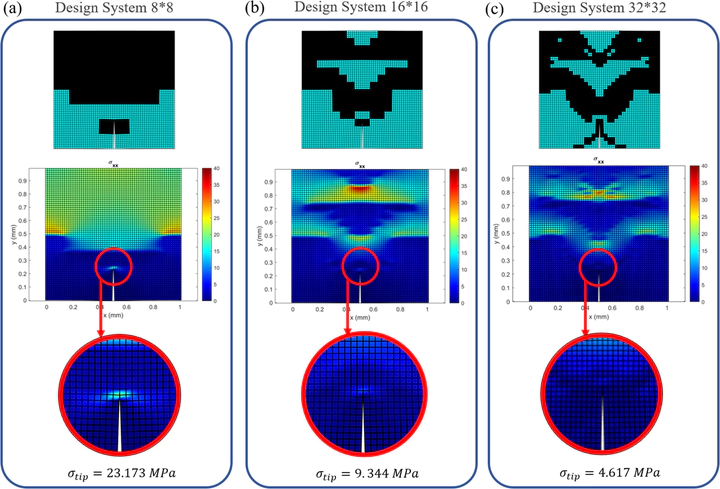Hierarchical Multiresolution Design of Bioinspired Structural Composites Using Progressive Reinforcement Learning

Abstract
A new method using reinforcement learning for designing bioinspired composite materials is proposed. While bioinspired design of materials is a promising avenue, the possible combination of building blocks in a composite is usually intractable. In this work, a new method is proposed based on reinforcement learning applied as an autonomous agent for arranging the microstructure that is composed of brittle and soft material. The resolution of the design space is enhanced in a progressive fashion, reaching increasingly higher resolution. The results show that the resulting high-resolution designs can significantly reduce stress concentrations at crack tips and enhance mechanical resilience. Complementing the experimental results with manufactured optimal composites shows excellent agreement with the optimal results obtained using the AI method. The framework reported in this work may serve as an alternative to conventional composite optimization techniques, which often suffer from the curse of high dimensionality and are also unable to effectively predict high-resolution designs, due to limitations of the algorithms to escape low-resolution local minima. The new approach discussed in this work can be widely applied in multiple areas of engineering and design, and the progressive multiresolution approach may also be critical for the de novo autonomous reinforcement engineering solution.